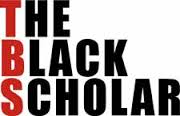
Black Queer and Trans*Aesthetics
The 21st century marks a turn for centralizing queer and trans* lives, bodies, and activism in the broader work for Black liberation, representation, and aesthetics. From the central leadership of queer Black women who founded the US-based #BlackLivesMatter movement to the art-activism of South African artist Zanele Muholi to queer imams and bishops to the renaissance of black independent filmmaking such as Tangerine (2015) and “Auntie” (2012), Black queer and trans* lives are no longer ancillary or adjacent to global conversations on Black life. Though the specter of queerness and transness differs by geography, politics, language, public life, infrastructure, and so on, Black queer and trans* people are redefining their intersectional lives and loves away from mainstream White Gay Inc. global movements that are often concerned, primarily, with securing state-based financial benefits related to relationship recognition.
Although there has always been work on Black queer and trans* genders and sexualities and aesthetics, scholars are publishing cutting-edge, vibrant work on this topic including, Ellison, Green, Richardson, and Snorton’s special issue of Transgender Studies Quarterly/TSQ called “The Issue of Blackness,” Stalling’s Funk the Erotic (2015), Woodard’s The Delectable Negro (2014), Snorton’s Nobody is Supposed to Know (2014), McCune’s Sexual Discretion (2014), Bailey’s Butch Queens Up in Pumps (2013), Ellis’s Territories of the Soul (2015) and others that make Black queer and trans* lives the epicenter of their work.
Following the tireless work of James Baldwin, Audre Lorde, Combahee River Collective, Bayard Rustin, Barbara Smith, Marlon Riggs, and many other of our intellectual and artistic antecedents, the editors of this special issue seek to engage with scholars, artists, and writers around the various movements—recognized and covert, legal and fugitive, funded and gratis— that reflect the robust and divergent ways Black queer and trans* people are reframing and reshaping their countries, art fields, scholarly fields, communities, religious groups, and other spaces and places.
Rather than consciously defining themselves against antagonistic white mainstream gay movements and resistant black social justice movements, Black queer and trans* people have made their own movements which have eclipsed or entered the mainstream consciousness to varying degrees.
We seek essays that map Black queer and trans* lives in relation to:
- Aesthetic forms
- Community organizing
- Guerilla tactics
- Passing and subversion
- Politics of Black love
- Global South, “third world,” and other worldly formations
- Radical interracialism
- Black futurity
- Black pessimism
- Black Philosophy
- Afrofuturism
- Africana aesthetics and traditions
- Black Lives Matter
- “Got 2 B Real”
- Blackness and Religion
- Academia
- Queerness, Transness, and Pop Culture
- Trans* Blackness and Trans media
- Sex work
- Queer and Trans* Africanness
- Caribbean Studies/Culture and Queer and Trans*
- Carnival/Caribana/CropOver/Mardi Gras
- The Black Literary Tradition
- Pop Matters
- Mass Incarceration and Policing
- Traveling while Black & Trans*/Black & Queer
- Black Trans* and Queer art worlds
- Afro Latinidad and Queerness and Transness
- AfroAsian Queer and Trans* Aesthetics
- debate on uses of “queer” and “trans*”
Submission Guidelines
Submissions to TBS must be original, unpublished work not under consideration for publication elsewhere. To make sure your submission is processed as smoothly as possible, please review our general guidelines on The Black Scholar website here.
For this issue, full-length manuscripts for peer review should range in length from 4,000-4,500 words. Shorter essays and articles should range in length from 2,000-3,000 words. Our peer review process takes about 2-3 months.
We require electronic submissions, in Word format, only. To submit articles, please go to http://www.editorialmanager.com/rtbs.
Because we strive for a public, Black/Africana Studies and interdisciplinary space of intellectual exchange, we discourage highly specialized or professional language and encourage open, argumentative work that is well written. Strive for an essayistic tone and target your submission to an engaged, educated, but general audience.
All full manuscript submissions due by February 1, 2018. Issue is slated for publication in Spring of 2019.
For questions, please email the Guest Editors at:
Shanté Paradigm Smalls [smallss@stjohns.edu]
Elliott H. Powell [ehpowell@umn.edu]
CFP link: http://www.theblackscholar.org/call-for-papers/black-queer-transaesthetics/

Leave a Reply